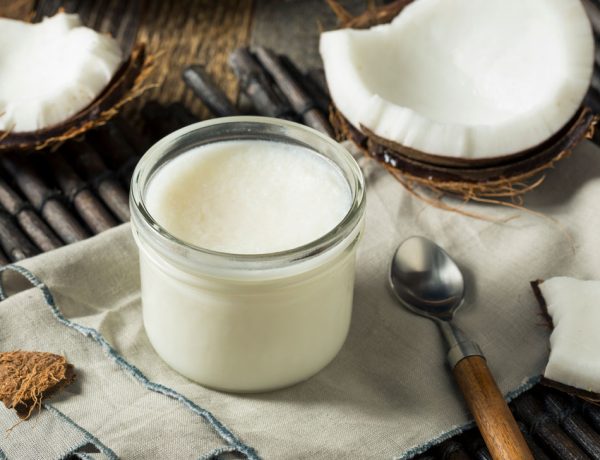If you’ve ever woken up with a puffy face, you know how frustrating it can be. It can make you feel self-conscious and uncomfortable throughout the day. While there are many causes of facial puffiness, there is a natural remedy that can help: quercetin. Quercetin is a flavonoid found in many fruits and vegetables that has been shown to have anti-inflammatory properties. In this article, we’ll explore how quercetin can help reduce facial puffiness and improve your skin health.
Table of Contents
Introduction to Quercetin
Quercetin is a flavonoid that belongs to a group of plant pigments called bioflavonoids. It is found in many fruits and vegetables, including apples, blueberries, grapes, onions, and broccoli. Quercetin has been studied for its anti-inflammatory, antioxidant, and anti-cancer properties, and has been shown to have a number of health benefits.
What Causes a Puffy Face?
Facial puffiness can have many causes, including dehydration, allergies, lack of sleep, and hormonal changes. When your face is puffy, it can be a sign of inflammation, which is your body’s natural response to injury or infection. Inflammation can cause fluid to build up in your tissues, leading to swelling and puffiness.
How Does Quercetin Help Reduce Facial Puffiness?
Quercetin has been shown to have anti-inflammatory properties, which can help reduce facial puffiness. It works by inhibiting the production of inflammatory molecules in your body, such as prostaglandins and leukotrienes. By reducing inflammation, quercetin can help reduce fluid buildup in your tissues, which can lead to a reduction in facial puffiness.
In addition, quercetin has been shown to have antioxidant properties, which can help protect your skin from damage caused by free radicals. Free radicals are unstable molecules that can damage your skin cells and contribute to the aging process. By protecting your skin from free radical damage, quercetin can help improve the overall health and appearance of your skin.
Benefits of Using Quercetin for Skin Health
In addition to reducing facial puffiness, quercetin has a number of other benefits for skin health. Here are just a few:
Reduces the Appearance of Fine Lines and Wrinkles
Quercetin has been shown to stimulate the production of collagen, a protein that gives your skin its elasticity. As you age, your body produces less collagen, which can lead to the formation of fine lines and wrinkles. By stimulating collagen production, quercetin can help reduce the appearance of fine lines and wrinkles.
Improves Skin Texture and Tone
Quercetin has been shown to improve skin texture and tone by increasing blood flow to your skin. Improved blood flow can help deliver oxygen and nutrients to your skin cells, which can help improve their overall health and appearance.
Reduces the Risk of Sun Damage
Quercetin has been shown to have photoprotective properties, which can help protect your skin from damage caused by UV radiation. UV radiation can damage your skin cells and contribute to the development of skin cancer. By protecting your skin from UV radiation, quercetin can help reduce your risk of developing skin cancer.
How to Incorporate Quercetin into Your Skincare Routine
There are several ways to incorporate quercetin into your skincare routine. Here are a few:
Use a Quercetin-Containing Skincare Product
There are many skincare products on the market that contain quercetin. Look for products that list quercetin as an active ingredient, and apply them to your face as directed.
Eat Foods That Contain Quercetin
You can also get quercetin from the foods you eat. Some of the best sources of quercetin include apples, blueberries, grapes, onions, and broccoli. Try to incorporate these foods into your diet on a regular basis.
Take a Quercetin Supplement
If you’re not getting enough quercetin from your diet, you can also take a quercetin supplement. Quercetin supplements are available in pill, capsule, and powder form. Be sure to follow the dosage instructions on the label.
Foods That Contain Quercetin
As mentioned, quercetin is found in many fruits and vegetables. Here are some of the top food sources of quercetin:
Apples
Apples are a great source of quercetin. In fact, the skin of an apple contains more quercetin than the flesh. Try to eat an apple a day to get your daily dose of quercetin.
Blueberries
Blueberries are another great source of quercetin. They are also rich in antioxidants and other nutrients that are good for your skin.
Grapes
Grapes are a good source of quercetin, as well as other flavonoids and antioxidants. They are also high in water content, which can help keep your skin hydrated.
Onions
Onions are one of the richest sources of quercetin. They are also rich in sulfur compounds, which have been shown to have anti-inflammatory properties.
Broccoli
Broccoli is another great source of quercetin. It is also rich in vitamin C, which is important for collagen production and skin health.
Quercetin Supplements and Their Effectiveness
While it’s best to get your nutrients from whole foods, quercetin supplements can be a convenient way to ensure that you’re getting enough of this important flavonoid. However, it’s important to note that the effectiveness of quercetin supplements is still being studied, and more research is needed to determine their benefits and potential risks.
Some studies have suggested that quercetin supplements may help reduce inflammation and improve exercise performance, while others have found no significant benefits. If you’re considering taking a quercetin supplement, be sure to talk to your doctor first to determine if it’s right for you.
Side Effects and Precautions of Quercetin
While quercetin is generally considered safe, it’s important to note that it can interact with certain medications and may cause side effects in some people. Common side effects of quercetin include headaches, stomach upset, and nausea.
If you’re taking blood-thinning medications or have a bleeding disorder, you should avoid taking quercetin supplements, as it may increase your risk of bleeding. Additionally, if you’re pregnant or breastfeeding, you should talk to your doctor before taking quercetin supplements.
Other Natural Remedies for Reducing Facial Puffiness
In addition to quercetin, there are several other natural remedies that can help reduce facial puffiness. Here are a few:
Drink Plenty of Water
Dehydration can contribute to facial puffiness, so it’s important to drink plenty of water throughout the day. Aim for at least eight glasses of water per day.
Use a Cold Compress
Applying a cold compress to your face can help reduce inflammation and puffiness. Simply wrap a few ice cubes in a towel and apply it to your face for a few minutes.
Elevate Your Head While Sleeping
Sleeping with your head elevated can help prevent fluid from accumulating in your face while you sleep. Try propping up your pillows or using a wedge pillow to elevate your head.
Conclusion
Facial puffiness can be frustrating, but there are natural remedies that can help. Quercetin, a flavonoid found in many fruits and vegetables, has been shown to have anti-inflammatory and antioxidant properties that can help reduce facial puffiness and improve skin health. By incorporating quercetin-rich foods into your diet and using quercetin-containing skincare products, you can help reduce the appearance of facial puffiness and improve the overall health and appearance of your skin.




No Comments